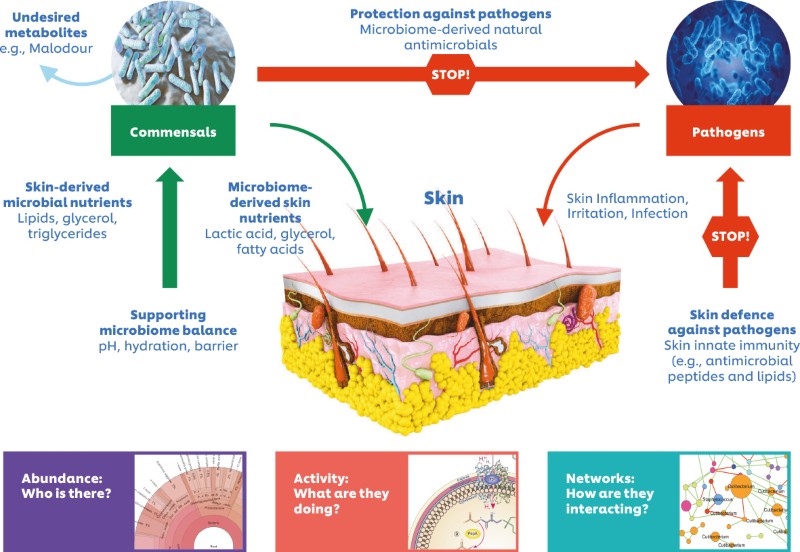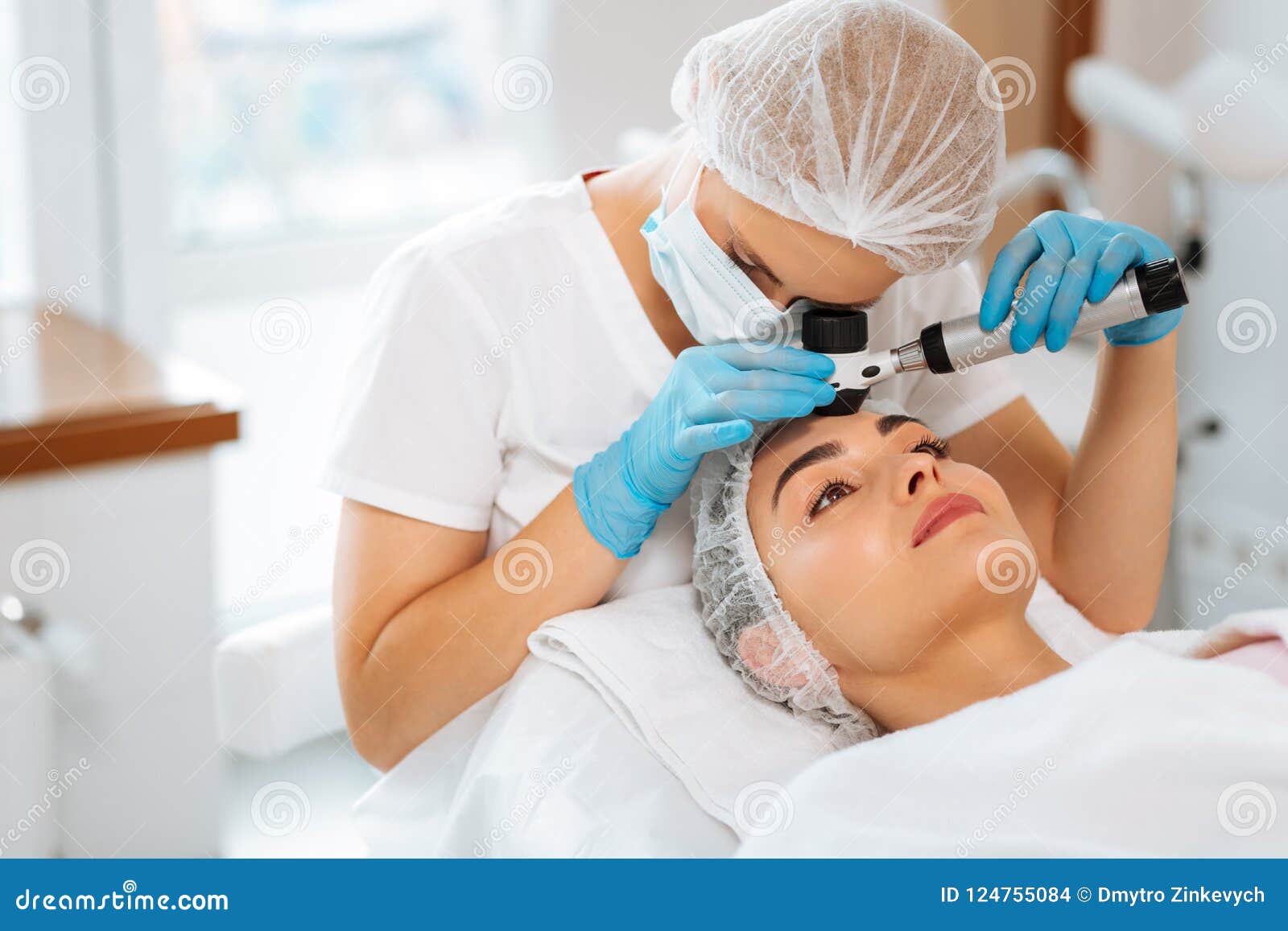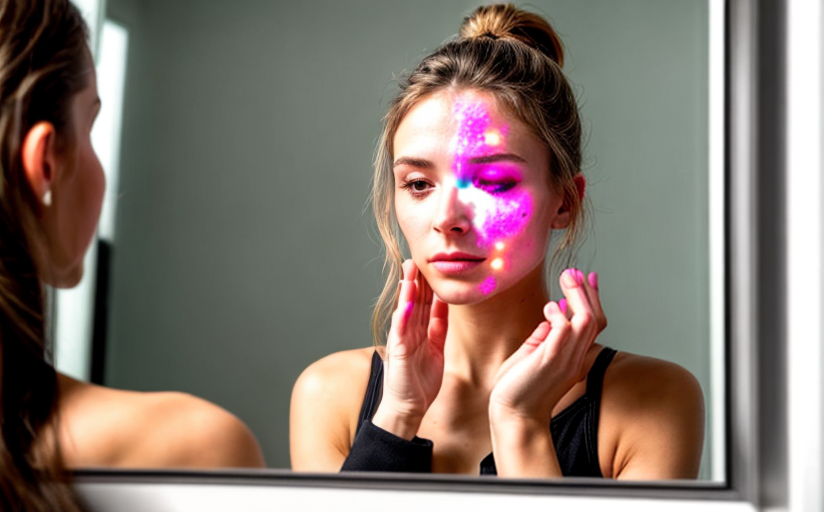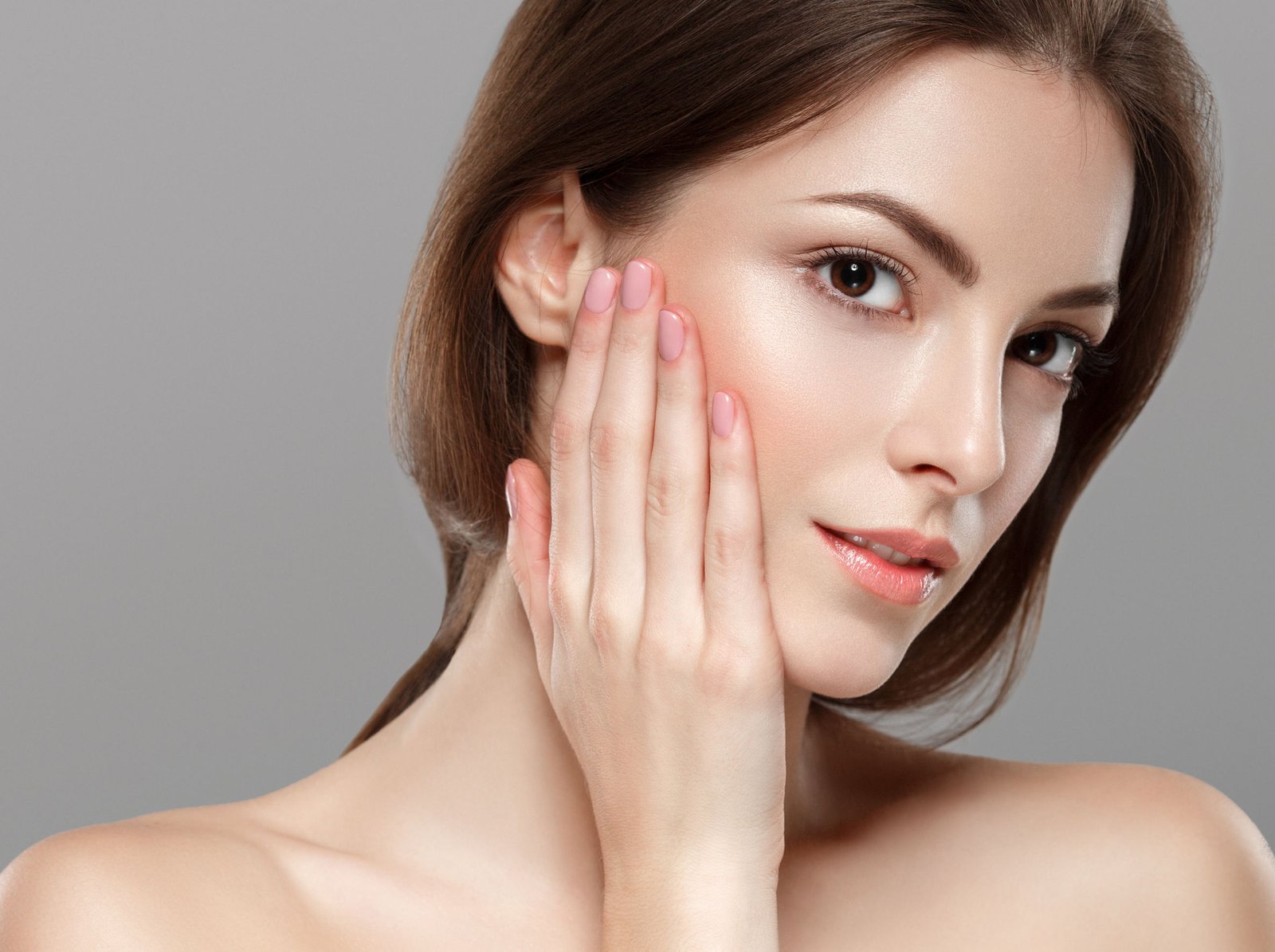The Complex Relationship Between Makeup and Skin Health: A Comprehensive Examination
Related Articles: The Complex Relationship Between Makeup and Skin Health: A Comprehensive Examination
Introduction
With enthusiasm, let’s navigate through the intriguing topic related to The Complex Relationship Between Makeup and Skin Health: A Comprehensive Examination. Let’s weave interesting information and offer fresh perspectives to the readers.
Table of Content
The Complex Relationship Between Makeup and Skin Health: A Comprehensive Examination

The relationship between makeup and skin health is a multifaceted one, often sparking debate and raising concerns. While makeup can enhance features and boost confidence, it’s crucial to understand its potential impact on the skin. This examination delves into the complexities of makeup use, exploring both its potential drawbacks and benefits, ultimately aiming to provide a balanced perspective.
Potential Drawbacks of Makeup Use:
1. Clogged Pores and Breakouts:
Makeup, particularly foundation, concealer, and powder, can contribute to clogged pores. These products often contain oil-based ingredients or pigments that can trap sebum (natural skin oil) and dead skin cells, leading to breakouts, blackheads, and whiteheads.
2. Skin Irritation and Allergies:
Many makeup products contain fragrances, dyes, preservatives, and other chemicals that can irritate sensitive skin. These ingredients can trigger allergic reactions, causing redness, itching, swelling, and even eczema.
3. Increased Risk of Acne:
Certain makeup ingredients, such as mineral oil, can exacerbate acne by clogging pores and promoting bacterial growth. This is particularly true for individuals with oily or acne-prone skin.
4. Long-Term Skin Damage:
Excessive makeup use, especially heavy foundation and concealer, can potentially contribute to long-term skin damage. The constant application and removal of these products can irritate and weaken the skin barrier, making it more susceptible to environmental damage and premature aging.
5. Eye Infections:
Eye makeup, particularly mascara and eyeliner, can harbor bacteria if not properly cleaned and replaced regularly. This can lead to eye infections like conjunctivitis (pink eye) and styes.
6. Environmental Concerns:
Many makeup products contain microplastics, which can end up in the environment and contribute to pollution. Additionally, the packaging and manufacturing processes of makeup can have a significant environmental footprint.
Benefits of Makeup Use:
1. Enhanced Confidence and Self-Expression:
Makeup can be a powerful tool for enhancing features, boosting confidence, and expressing creativity. It can help individuals feel more comfortable in their own skin and embrace their unique beauty.
2. Sun Protection:
Some foundations and tinted moisturizers contain SPF, which can provide protection from harmful UV rays. This is particularly important for individuals who are prone to sun sensitivity or spend a lot of time outdoors.
3. Concealing Imperfections:
Makeup can effectively conceal blemishes, redness, dark circles, and other skin imperfections, providing a more even and flawless complexion.
4. Creative Expression and Art:
Makeup can be a form of artistic expression, allowing individuals to experiment with colors, textures, and techniques. It can be a fun and creative outlet for self-expression.
5. Professional and Social Advantages:
In certain professions and social situations, makeup can be considered a form of professional etiquette or a way to enhance one’s appearance for social gatherings.
Key Considerations for Responsible Makeup Use:
1. Choosing the Right Products:
Opt for non-comedogenic (non-pore clogging) products that are free of irritating ingredients, such as fragrances, dyes, and preservatives. Look for products specifically formulated for sensitive skin.
2. Patch Testing:
Before applying a new product to your entire face, perform a patch test on a small area of skin. This will help identify any potential allergic reactions or irritations.
3. Proper Application and Removal:
Apply makeup gently and avoid rubbing or tugging at the skin. Use a gentle cleanser and makeup remover to remove makeup thoroughly before bed.
4. Regular Cleaning and Replacement:
Clean brushes and sponges regularly to prevent bacteria buildup. Replace makeup products, especially mascara and eyeliner, every 3-6 months.
5. Minimalism and Balance:
Practice minimalism when applying makeup, focusing on key areas and using a light hand. Avoid layering too many products, especially heavy foundations and concealers.
6. Skin Care Routine:
Maintain a consistent skin care routine that includes cleansing, exfoliating, and moisturizing. This will help keep your skin healthy and balanced, reducing the risk of breakouts and irritation.
7. Environmental Awareness:
Choose makeup products from brands that prioritize sustainability and environmental responsibility. Consider purchasing refillable products and opting for eco-friendly packaging.
Frequently Asked Questions (FAQs):
Q: Is it safe to wear makeup every day?
A: While there is no definitive answer, wearing makeup every day can potentially contribute to clogged pores, irritation, and long-term skin damage. It’s important to choose the right products, apply them minimally, and remove them thoroughly each night.
Q: How can I prevent breakouts from makeup?
A: Opt for non-comedogenic products, cleanse your skin thoroughly before and after makeup application, and avoid layering too many products. Consider using oil-free makeup and removing makeup before bed.
Q: Is makeup bad for your skin?
A: Makeup can be beneficial or detrimental to your skin depending on the products you use, the way you apply them, and your skin’s sensitivity. Choosing high-quality, non-irritating products and practicing responsible makeup use can minimize potential risks.
Q: What are the best makeup products for sensitive skin?
A: Look for products labeled "sensitive skin," "hypoallergenic," or "non-comedogenic." Choose products with minimal ingredients, avoiding fragrances, dyes, and preservatives.
Q: How often should I replace my makeup?
A: Replace mascara and eyeliner every 3-6 months, as these products are prone to bacterial contamination. Replace other makeup products, such as foundation and powder, every 12-18 months.
Tips for Responsible Makeup Use:
- Start with a Clean Canvas: Cleanse your face thoroughly before applying makeup to remove dirt, oil, and impurities.
- Moisturize Before Makeup: Apply a lightweight moisturizer to create a smooth base for makeup and prevent dryness.
- Use a Primer: Primer helps create a smooth surface for makeup application and extends its wear.
- Choose the Right Foundation: Select a foundation that matches your skin tone and type. Opt for a lightweight formula for everyday wear.
- Less is More: Apply makeup sparingly and blend it well to avoid a cakey appearance.
- Remove Makeup Thoroughly: Use a gentle makeup remover to remove all traces of makeup before bed.
- Clean Brushes and Sponges Regularly: Wash brushes and sponges weekly to prevent bacteria buildup.
Conclusion:
The relationship between makeup and skin health is complex and multifaceted. While makeup can enhance features and boost confidence, it’s important to use it responsibly to minimize potential risks. Choosing the right products, applying them minimally, and maintaining a consistent skin care routine are essential for maintaining healthy and radiant skin. Ultimately, the key lies in striking a balance between enhancing your appearance and prioritizing your skin’s well-being.








Closure
Thus, we hope this article has provided valuable insights into The Complex Relationship Between Makeup and Skin Health: A Comprehensive Examination. We appreciate your attention to our article. See you in our next article!